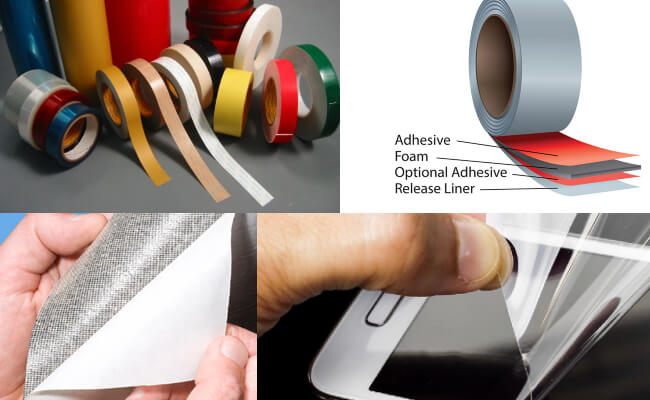- Call: +1 850 633 2663

The use of PSA in high performance applications has been increased due to advances in formulation technologies. PSA's are designed with a balance between flow and resistance to flow. The bond forms because the adhesive is soft enough to flow, or wet, the adherend. The bond has strength because the adhesive is hard enough to resist flow when stress is applied to the bond. A pressure-sensitive adhesive can be made from different materials. It can be water based, solvent based, 100%-solid based, like a hot melt, UV/EB-cured, silane cured, PU-based etc... At the end it needs to have the right physical and chemical properties to do the specific job. The end application can be an adhesive layer on a label or a tape and so on. There can be additional demands, like; should it be removable? Should it withstand high shear forces or has it to keep adhesion when subjected to creep? Is staining or migration of oil an issue? All these demands can be translated to the properties of the adhesive.
Training will explain the forces involved in a bond with a PSA. What are some tools to measure and approach a PSA. What is the Dalquist criterion? How can we measure the glass transition temperature (Tg)? And how can we reach the right criterion by using tackifying resins and oils? How can we shift the Tg by using these ingredients? What type of resin do we have to use? Resins based on rosin or rather on hydrocarbon resources etc...?
Expert will explain the working of a pressure-sensitive adhesive (PSA) and how we can reach the right properties by right selection and using tackyfiers, plasticizers and polymers. He will give you must have understanding of some tools to measure and approach PSA along with Dalquist criterion. It might be a different angle from where you are looking to this subject. It can give you new ideas to develop a PSA. It could give also manufacturers of self adhering materials a basic understanding of how pressure-sensitive adhesive (PSA) work.
Highly recommended training for R&D chemists, developers, formulators of adhesives, distributors of tackifying resins, plasticizers.
4 reviews